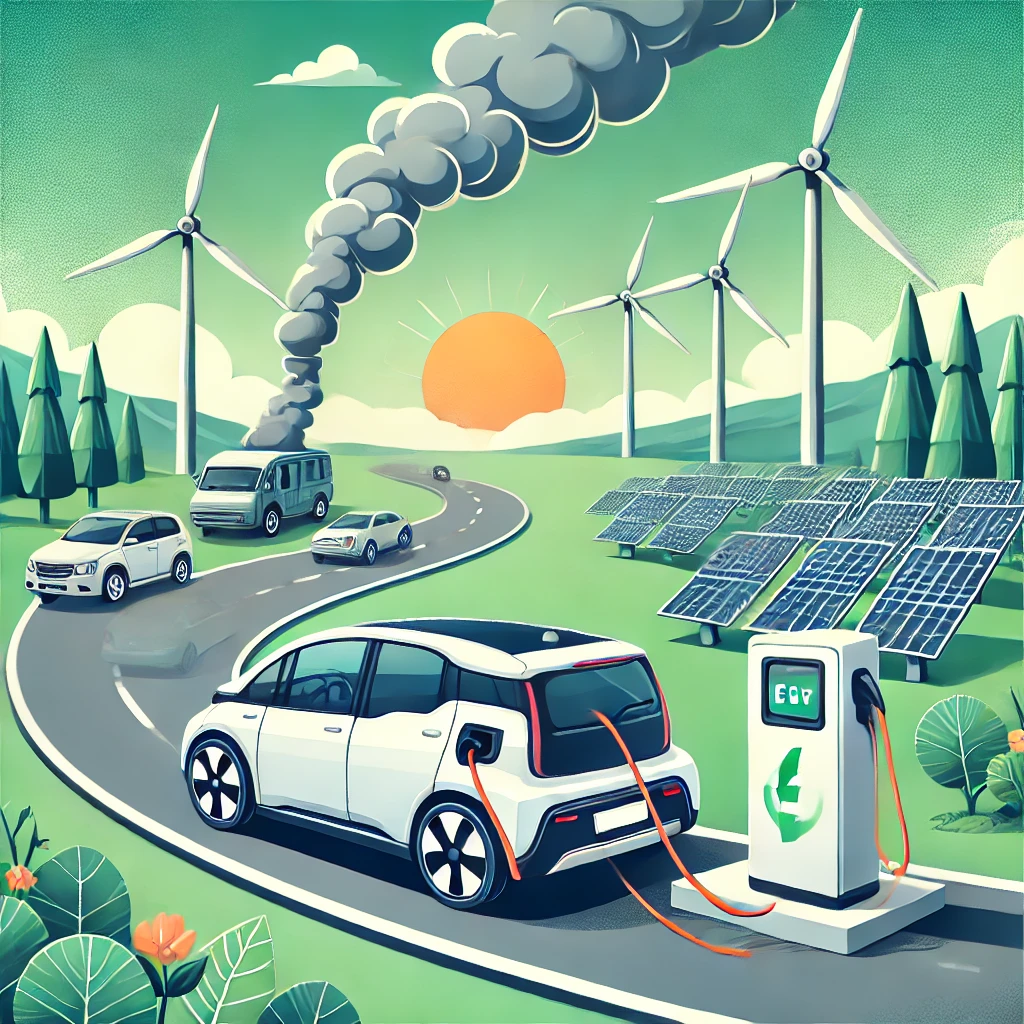Do Electric Cars Help the Planet?
Article Source: Electric Vehicles and the Environment

Why you should care
Electric vehicles (EVs) are often promoted as a key tool in reducing global carbon emissions. With transportation responsible for a large chunk of greenhouse gas emissions, EVs could play a big role in combating climate change. But are they as green as they seem? Understanding the real impact of EVs can help you make more eco-conscious decisions, especially as we transition to cleaner technologies.
Answering the question… Do Electric Cars Help the Planet?
EVs are largely better for the environment because they produce no direct emissions. However, the full picture includes the energy used in producing their batteries and the electricity used to charge them. The study reveals that, while not perfect, EVs significantly reduce emissions over their lifetime, especially when charged using renewable energy.
How was the study done?
The researchers used life cycle assessments (LCAs) to examine the entire environmental impact of EVs—from the production of raw materials (like lithium for batteries) to their energy consumption and eventual disposal. Data was collected from various regions with different electricity generation methods, allowing researchers to compare countries that use renewable energy with those that still rely on fossil fuels.
What was discovered?
- Emissions Reduction: EVs can cut greenhouse gas emissions by 50% compared to conventional gasoline-powered cars over their lifetime.
- Electricity Source Dependency: The eco-friendliness of EVs is closely linked to the energy grid. In places where most electricity comes from renewable sources (wind, solar, hydro), EVs reduce emissions by up to 90%. In areas still dependent on coal, the reduction is much lower.
- Battery Production Impact: Producing EV batteries is energy-intensive and can contribute 30-40% of the vehicle's total emissions. However, as technology improves and recycling systems become more efficient, this percentage could decrease.
- Offsetting Production Emissions: Despite the high emissions during production, EVs usually offset this after about 2-3 years of use, depending on how clean the electricity grid is. After that, they start to offer net environmental benefits.
- Battery Recycling: Advances in recycling can reduce the environmental burden of EVs, with battery recycling expected to recover up to 95% of valuable materials, significantly reducing the need for new raw materials.
Why does it matter?
EVs represent a crucial step toward reducing global greenhouse gas emissions, especially when powered by clean energy. While there are challenges, particularly in battery production, the long-term benefits of switching to EVs far outweigh the drawbacks. As we transition to greener technologies, understanding how EVs impact the environment can help governments and consumers make smarter choices.
